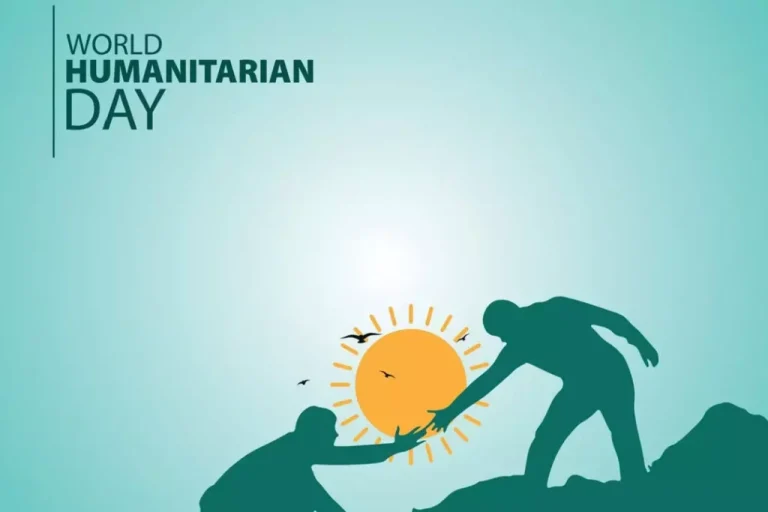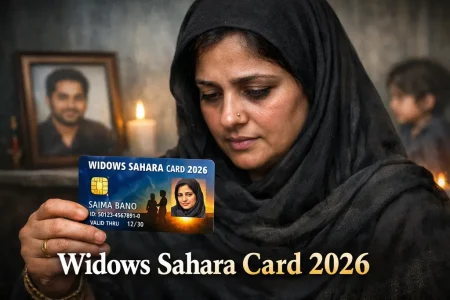Every year, World Humanitarian Day reminds us of the struggles faced by people caught in crises across the globe. It is also a day to honor the courage of aid workers and volunteers who risk their lives to bring comfort and hope to others.
Among the nations leading these efforts, the United Arab Emirates stands out, not only as a generous donor but also as a symbol of compassion and solidarity in today’s challenging times.Through its longstanding commitment, strategic measures and people-oriented policies, it has not only strengthened nations, but also preserved millions of lives worldwide.
UAE’s foreign aid reached over one billion people by mid-2024 at a total cost exceeding AED 368 billion. These donations also reflect the country’s long-standing philosophy toward humanity, which will ultimately bridge the gap between nations and cultures. The UAE has made it clear that power projection is not a policy but a state of being, from its multinational emergency relief operations to its long term bridge and road building endeavours in far-flung nations.
As the UAE commemorates World Humanitarian Day tomorrow, the nation reaffirms its longstanding commitment to humanitarian action, having extended aid valued at more than AED 368 billion ($100.2 billion) to support over one billion people globally since mid-2024.
— Economy Middle East (@Economy_ME) August 18, 2025
Read more:… pic.twitter.com/NFzrngNYiF
UAE’s Humanitarian Outreach in Pakistan
While UAE support applies to the war-torn regions of the Middle East, it also stretches to South Asia, mainly Pakistan, where the presence of Emiratis helped significantly in meeting social, community demands.
The DP World Foundation also distributed 7,500 food supply boxes in Karachi during the month of Ramadan to provide vulnerable families with nutritious food. Apart from food security, the UAE has been a strong partner in infrastructure and development programs in Pakistan for the past years. Its investments in schools, healthcare centers and transportation projects have built up communities while filling in the gaps that national budgets often cannot cover. It is these contributions that underline the UAE’s dedication to making a difference, not only in the immediate term, but to effect lasting change.
Aid to Conflict Zones: Standing with the People of Gaza
The UAE’s humanitarian deeds shine, too, amid ongoing wars around the region, notably Palestine. UAE is leading the global humanitarian response to the Gaza Strip. The UAE accounted for almost 44 per cent of all foreign aid sent to Gaza, according to the United Nations. Through its massive operations, such as “Operation Chivalrous Knight 3“, the UAE has completed 73 Airdrop Mission under “Birds of Goodness” campaign, having distributed more than 3,988 tons of food and other aid to targeted areas under siege. This steadfast backing has literally brought hope and comfort to families in despair during the dark days of war. The Israeli aggression in Gaza, revealed the UAE’s proactive stance in the strip, since the small pocket of Palestine became a battleground where humanitarian aid became a principle, not an option.
Long-Term Investments in Global Development
Humanitarianism for the UAE is not confined to emergency situations. The country has also invested significantly in long-term development projects, particularly in infrastructure across developing and underdeveloped nations. In 2016, the UAE set aside about AED 295 million (USD 80 million) for transport projects. Almost 70% went to countries facing financial struggles. These programs were not just about building roads—they also helped weak economies stand on their feet. By mixing quick aid with longer projects, the UAE found a way to offer both relief and resilience at the same time.
A Global Model of Humanitarian Leadership
This World Humanitarian Day is a chance to think about how some nations step forward when it really matters. The UAE has quietly built a reputation for doing exactly that. It’s not just about one-off donations or photo opportunities; time and again we’ve seen its support reach people who were desperate for relief. Whether it was trucks of emergency supplies moving into Gaza, food packs being delivered in Karachi’s crowded neighborhoods, or roads laid down in poor and forgotten areas, the approach has always been steady and meaningful.
What stands out is the pattern behind it. Crises don’t wait for the right time, and yet the UAE has managed to respond in ways that feel planned but also deeply humane.
Also read this: Why the UAE Stands Apart: A Federation and Monarchical Unity







